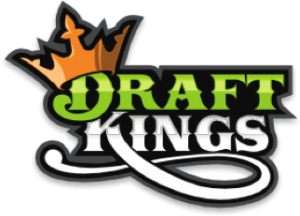Nevada Gaming Control Board Head Examining DFS
The daily fantasy sports (DFS) industry has exploded in the United States in the last few years, stepping – at least partially – into the void left by the disappearance of most online poker outlets. Sports fans can see commercials for the two top DFS sites, DraftKings and FanDuel, constantly. Both of those sites have inked marketing deals with major players such as the NBA, NHL, and ESPN. Daily fantasy sports are everywhere and lots of Americans have a blast playing the games, whether it is for free, a couple bucks, or for big money. The relatively smooth ride DFS has had so far may get a little bumpier, though. On Monday, ESPN.com gambling writer David Purdum tweeted, “Nevada Gaming Control chairman AG Burnett has begun legal analysis of daily fantasy sports and welcomes communication from DFS operators.”
 So what does this mean? Not necessarily anything bad, but it does at the very least show that DFS is no longer flying under the radar of gaming regulators. Most people would agree that DFS is gambling, but it falls into the same bucket as poker, a form of gambling heavily reliant on skill. For those unfamiliar, in daily fantasy sports, participants pay a buy-in to put together a team of players based on certain pre-determined rules. Teams can be created via a draft, in which competitors take turns choosing players, or within the constraints of a salary cap, where each player is given a certain fictional “salary” and participants must keep their team under a total combined salary level. The performance of each real-life athlete is tracked that day (or that week, depending on the game) and each player is awarded points based on their performance. The DFS participant whose team earns the most points wins. The winners receive prize money, just like in poker.
So what does this mean? Not necessarily anything bad, but it does at the very least show that DFS is no longer flying under the radar of gaming regulators. Most people would agree that DFS is gambling, but it falls into the same bucket as poker, a form of gambling heavily reliant on skill. For those unfamiliar, in daily fantasy sports, participants pay a buy-in to put together a team of players based on certain pre-determined rules. Teams can be created via a draft, in which competitors take turns choosing players, or within the constraints of a salary cap, where each player is given a certain fictional “salary” and participants must keep their team under a total combined salary level. The performance of each real-life athlete is tracked that day (or that week, depending on the game) and each player is awarded points based on their performance. The DFS participant whose team earns the most points wins. The winners receive prize money, just like in poker.
One of the interesting things about daily fantasy sports is that it is explicitly legal in the first place, whereas online poker, a game which requires a similar combination of skill and luck, is not in most jurisdictions. This is because the UIGEA, the legislation that aimed to stop online gambling, actually contained a carve-out for fantasy sports. According to the UIGEA, as long as fantasy sports games meet the following criteria, they are legal on a federal level:
1. All prizes are made known in advance of the contest and their value is not determined by the number of entrants or the entry fee.
2. Results “reflect the relative knowledge and skill of the participants” and must be determined “predominantly” by the stats produced by athletes in multiple games.
3. The winning outcome of the DFS match is not based on point spreads, a single real-world team, or a single real-world athlete.
The only real question is with the first point, as generally, the higher the buy-in and the more players there are in a given DFS contest, the greater the prizes. DFS sites get around this, though, by structuring most of the games like poker Sit-and-Go’s, where the prizes are known before anyone buys in. Many contests also have guaranteed prize pools, so buy-ins and number of participants don’t necessarily determine the prizes.
What Purdum’s tweet brings to light is the fact that gambling laws are really the domain of the individual states, a point many are using to argue against RAWA. So while the UIGEA provided a carve-out for fantasy sports, a state could decide to make such games illegal or could determine that they already are illegal according to the state’s legal code. Most state laws don’t specifically discuss DFS, mainly because it is such a young form of gambling.
And while land-based casinos are regulated, lotteries are regulated, and online poker/casino gambling is regulated, daily fantasy sports really isn’t, at least not to the extent the others are. As I mentioned earlier, most people who know anything about DFS would consider it gambling and casino executives across the board do, as well. There could very well be some animosity from those who head casinos or online gambling sites that DFS sites are often not subject to the same regulations – and therefore taxes – that traditional gambling businesses are.
As far as what the Nevada Gaming Control chairman will do, that remains to be seen. If he determines that DFS is gambling, that could start the ball rolling on a new regulatory era for the popular form of entertainment. This isn’t necessarily a bad thing, as when properly done, regulations certainly help consumers, but any added licensing red tape, fees, and taxes could slow down the growth of DFS. Additionally, as Nevada is the country’s leader in all things gambling, A.G. Burnett’s examination of DFS could spur on other states to do the same, especially those with well-established gambling regimes. Part of the recent success of DFS has been due to the combination of being legal on a national level yet at the same time operating without the constraints of strict regulation. While again, further examination of DFS isn’t necessarily bad, the industry’s top players might want the status quo to remain intact.
Could any of this have an effect on internet poker? Possibly. I’m just spitballing here, but if Nevada says DFS is ok, gambling or not, and other states follow suit, the natural skill comparisons to poker could help the ipoker industry in its fight for acceptance and legalization.

















COMMENTS